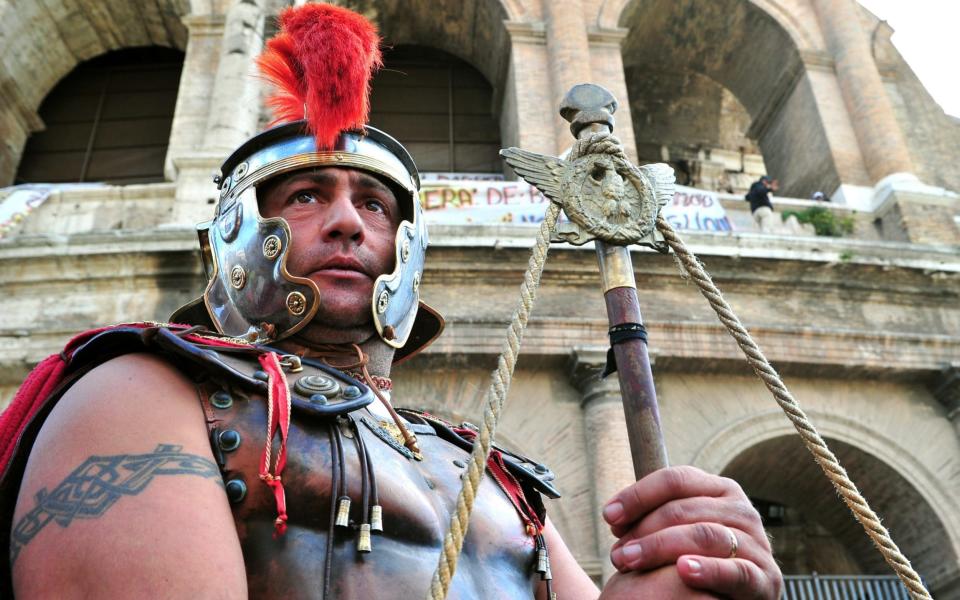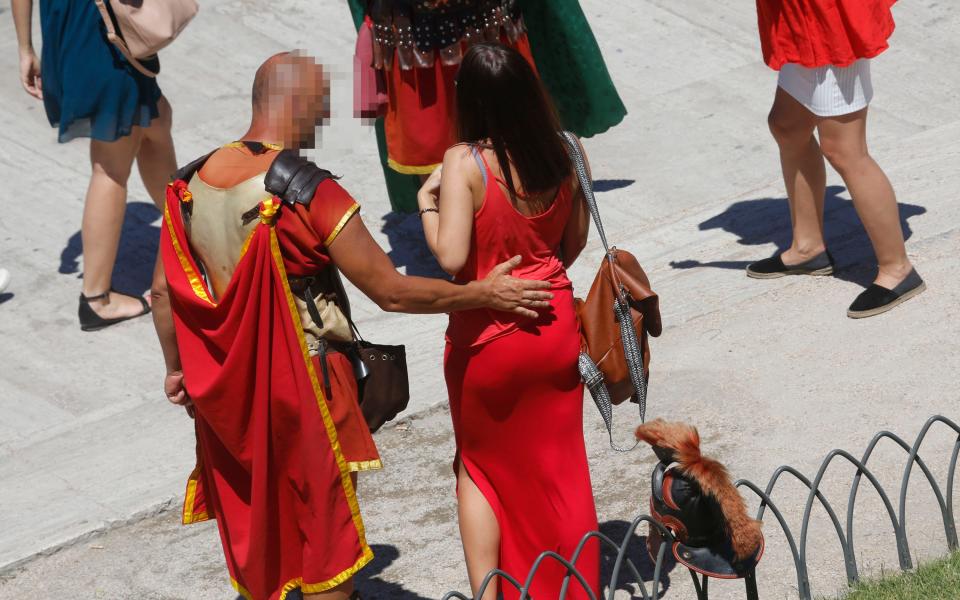Rome's modern-day centurions and legionaries return to Colosseum after ban is quashed

Their plastic swords and daggers might not stand up to real combat, but Rome’s modern-day centurions and legionaries are celebrating after winning a red tape battle with the city council.
Five months ago the administration, led by Virginia Raggi, the mayor, banned the latter-day Roman soldiers from hanging around monuments like the Colosseum and the Trevi Fountain, where for years they have made a living by posing for photographs with tourists and charging money.
But the touts – who dress up in tunics, capes and leather breastplates – launched an appeal against the ruling, saying their livelihoods had been ruined.

Now a regional tribunal has ruled in their favour, slapping down the council’s ban and saying that the centurions and gladiators can resume plying their trade without fear of being hit with a 400 euro fine.
The regional administrative court of Lazio, the region which encompasses Rome, upheld the appeal, which was presented by a street artists’ association that represents the costumed touts. The tribunal said the council had failed to consult all parties sufficiently and the ban was unjustified.
Suspending the measure, it called for the introduction of clearer guidelines on where the street artists can work and how much they can charge.
Until now, the sector has been largely unregulated, with the soldiers asking for anything between five euros and 50 euros for posing with tourists, depending on their gullibility.
There have been cases in the past where they have turned abusive and aggressive towards tourists who baulk at handing over large sums of cash.
They have also been accused of harassing young women tourists and on occasion touching them inappropriately.

But Daniele Di Porto, the vice-president of the Centurion Street Artists Association, insisted that he and his fellow legionaries were a big hit with most visitors. “When we pose for photos we just ask for a little contribution. We makes kids happy, we give out information to tourists. We are happy to be regulated,” he said.
The court also overturned a ban on pedal-powered rickshaws offering rides to tourists at well-known attractions such as the Pantheon – an ancient Roman temple converted into a church – and the Roman Forum.
The council, however, appears ready to continue the fight. “The city cannot be held hostage by centurions and rickshaws,” Ms Raggi wrote in a tweet. “Change must proceed. (We need) new regulations on decorum in order to protect the city.”

 Yahoo News
Yahoo News 